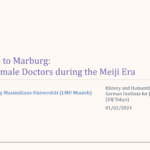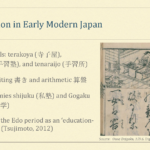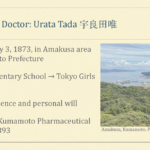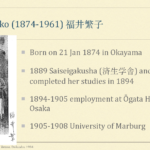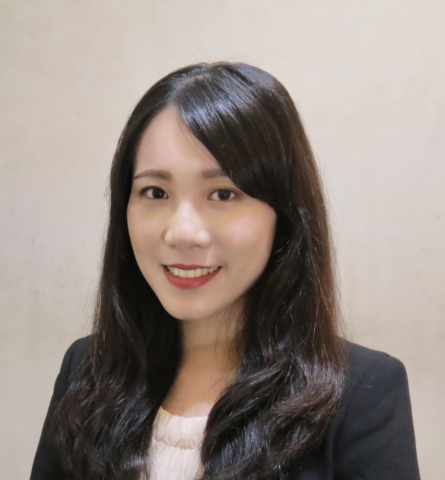
ダウンロード
場所
Online (Zoom)
登録情報
This is a past event. Registration is no longer possible.
DIJ Mailing Lists
Please subscribe below to stay informed about our research activities, events & publications:
From Tokyo to Marburg: Japanese Female Doctors during the Meiji Era
2024年2月1日
Wen-Wei Lan, Ludwig-Maximilians-Universität (LMU Munich)
During the Meiji Era, numerous Japanese students studied medicine in Germany, attracted by its reputation for medical training. Historians have demonstrated the educational experiences of these students, but they predominantly concentrated on those of males. Scant attention has been given to their female counterparts. This presentation focused on Japanese female medical students, offering a novel perspective on the historical study of education in Japan. Specifically, it examined the educational experience of two pioneer females, Dr. Urata Tada (1873-1936) and Dr. Fukui Shigeko (1874-1961), as case studies.
The presentation targeted Urata’s and Fukui’s educational experience in Germany in the early twentieth century. Their experiences were a breakthrough in the history of medical education, as women at that time commonly faced extra restrictions in pursuit of higher degrees. Notably, as foreign students, Urata and Fukui achieved their MD degrees at Marburg University. Their medical training served as a basis for them later to dedicate their careers to facilitating the public health of East Asian women. Upon returning to Japan, Urata became dean of Dōjin Hospital in Tianjin, China, and Fukui worked as an obstetrician and gynecologist at the Osaka Ogata Hospital.
Urata and Fukui achieved a breakthrough in the status of female doctors in the Japanese medical profession. This presentation employed the cases of these two female doctors to argue for their roles in facilitating the dissemination of knowledge during Japan’s modernization in medical areas. Importantly, it offered insights into the reform of Japanese female higher education in modern Japan.
The online talk was attended by approximately 35 participants from Japan, Taiwan, and Europe. During the Q&A session, discussions covered various topics, including potential connections to Japanese dispatched doctors, challenges faced by female medical students, complexities in managing gender roles in imperial Japan, and representations of female medical practitioners in the medical profession.
Wen-Wei Lan, a Ph.D. candidate affiliated with the Japan Center of Ludwig-Maximilians-Universität (LMU Munich), is dedicated to her research in the historical dimensions of education, gender dynamics, and disseminating knowledge within the context of modern Japanese history. Her doctoral research centers on the subjects of education and the overseas experiences of Japanese female doctors during the Meiji era. Before her enrollment at LMU, she was a research assistant at Academia Sinica and National Taiwan University. Wen-Wei conducted her fieldwork for her doctoral project at the DIJ from August to October 2023.
